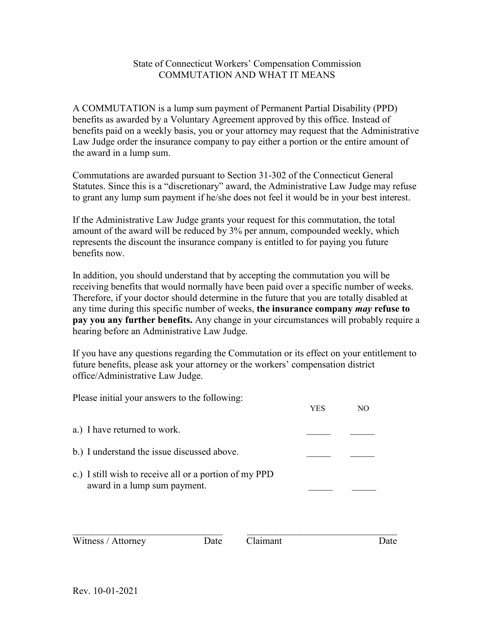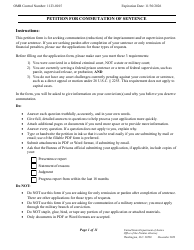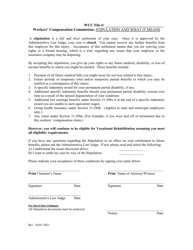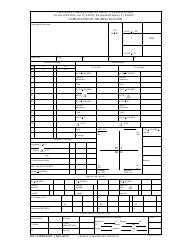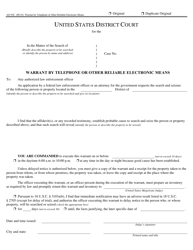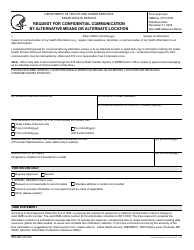Commutation and What It Means - Connecticut
Commutation and What It Means is a legal document that was released by the Connecticut Workers' Compensation Commission - a government authority operating within Connecticut.
FAQ
Q: What is commutation?
A: Commutation refers to the reduction or change in a criminal sentence.
Q: Why would a sentence be commuted?
A: A sentence may be commuted for various reasons, such as good behavior, clemency, or the need for leniency.
Q: Who has the power to commute sentences in Connecticut?
A: In Connecticut, the power to commute sentences lies with the Governor.
Q: Can all types of sentences be commuted?
A: No, not all types of sentences can be commuted. Some sentences, such as life imprisonment without parole, may not be eligible for commutation.
Q: What is the process for commutation in Connecticut?
A: The process for commutation in Connecticut typically involves an application to the Board of Pardons and Paroles, followed by a review and recommendation to the Governor.
Form Details:
- Released on October 1, 2021;
- The latest edition currently provided by the Connecticut Workers' Compensation Commission;
- Ready to use and print;
- Easy to customize;
- Compatible with most PDF-viewing applications;
- Fill out the form in our online filing application.
Download a printable version of the form by clicking the link below or browse more documents and templates provided by the Connecticut Workers' Compensation Commission.
